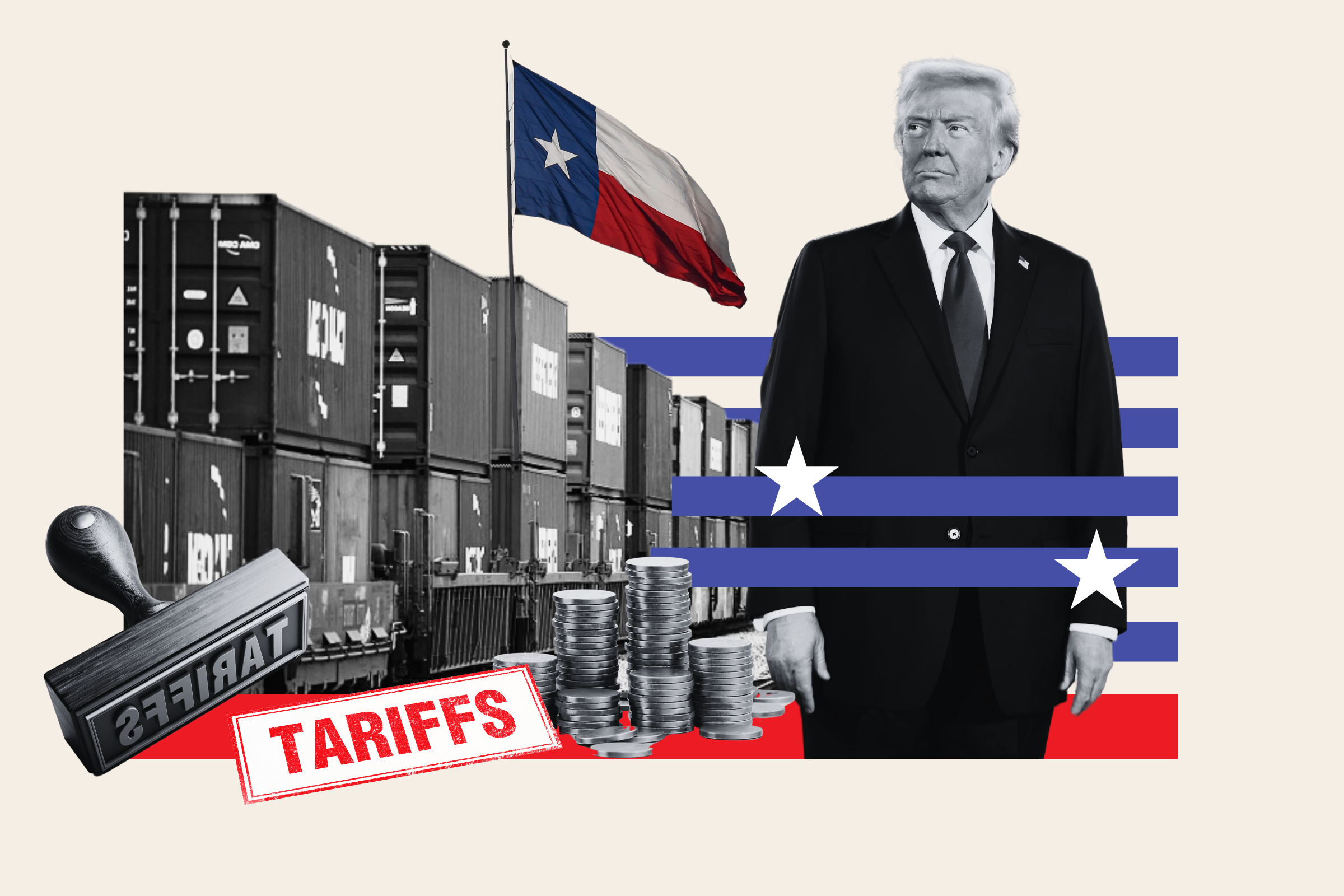How Tariffs Shape Domestic Industries And Economic Growth

Welcome to your ultimate source for breaking news, trending updates, and in-depth stories from around the world. Whether it's politics, technology, entertainment, sports, or lifestyle, we bring you real-time updates that keep you informed and ahead of the curve.
Our team works tirelessly to ensure you never miss a moment. From the latest developments in global events to the most talked-about topics on social media, our news platform is designed to deliver accurate and timely information, all in one place.
Stay in the know and join thousands of readers who trust us for reliable, up-to-date content. Explore our expertly curated articles and dive deeper into the stories that matter to you. Visit Best Website now and be part of the conversation. Don't miss out on the headlines that shape our world!
Table of Contents
How Tariffs Shape Domestic Industries and Economic Growth: A Complex Relationship
Tariffs, taxes on imported goods, are a powerful tool governments use to influence their economies. While often presented as a simple solution to protect domestic industries, the reality of their impact on economic growth is far more nuanced and complex. Understanding this complexity is crucial for policymakers and businesses alike. This article will delve into the multifaceted relationship between tariffs, domestic industries, and overall economic growth, exploring both the potential benefits and significant drawbacks.
The Argument for Tariffs: Protecting Domestic Industries
Proponents of tariffs often argue they shield nascent or struggling domestic industries from foreign competition. By making imports more expensive, tariffs increase the price competitiveness of domestically produced goods, potentially boosting domestic production, employment, and investment. This is particularly appealing for industries deemed strategically important, such as defense or essential infrastructure.
- Increased Domestic Production: Higher import prices incentivize consumers to shift towards domestically produced alternatives, leading to increased output and potentially job creation.
- Enhanced National Security: Tariffs on strategically vital goods can reduce reliance on foreign suppliers, bolstering national security.
- Revenue Generation: Tariff revenue can contribute to government coffers, potentially funding public services or reducing other taxes.
The Counterarguments: Economic Costs and Global Implications
However, the economic consequences of tariffs extend far beyond the immediate impact on specific industries. Several significant drawbacks need to be considered:
- Higher Prices for Consumers: The most direct effect of tariffs is higher prices for consumers. This reduces purchasing power and can lead to a decrease in overall consumer spending.
- Retaliation from Other Countries: Imposing tariffs can trigger retaliatory measures from other nations, leading to trade wars that harm all involved parties. This can disrupt supply chains, increase uncertainty, and negatively impact economic growth.
- Reduced Efficiency and Innovation: Protection from foreign competition can stifle innovation and efficiency within domestic industries. Without the pressure to compete globally, businesses may become complacent and less inclined to invest in research and development.
- Distorted Market Signals: Tariffs distort market signals, leading to misallocation of resources. Capital and labor may be channeled into less efficient industries simply because they are protected from competition.
The Impact on Economic Growth: A Balancing Act
The overall impact of tariffs on economic growth is highly dependent on a multitude of factors, including the size and scope of the tariffs, the specific industries affected, and the global economic environment. While tariffs might temporarily boost specific industries, the long-term consequences on consumer welfare, international trade relations, and overall economic efficiency often outweigh the short-term gains. A study by [link to relevant academic research on tariffs and economic growth] suggests that… (insert key finding from the study).
Navigating the Complexity: A Balanced Approach
The relationship between tariffs, domestic industries, and economic growth is complex and requires careful consideration. A balanced approach is needed, one that weighs the potential benefits of protecting certain industries against the potential negative consequences for consumers, international trade, and overall economic efficiency. Policymakers need to carefully assess the specific circumstances and potential long-term impacts before implementing tariff policies.
Conclusion:
Tariffs are a powerful tool, but their effective use requires careful analysis and a nuanced understanding of their potential consequences. Focusing solely on protecting domestic industries without considering the broader economic repercussions can be detrimental to long-term economic growth and global trade relationships. A more holistic approach that balances the needs of domestic industries with the benefits of free and fair trade is crucial for fostering sustainable economic development. Further research and open dialogue are needed to better understand the complexities of this critical issue.

Thank you for visiting our website, your trusted source for the latest updates and in-depth coverage on How Tariffs Shape Domestic Industries And Economic Growth. We're committed to keeping you informed with timely and accurate information to meet your curiosity and needs.
If you have any questions, suggestions, or feedback, we'd love to hear from you. Your insights are valuable to us and help us improve to serve you better. Feel free to reach out through our contact page.
Don't forget to bookmark our website and check back regularly for the latest headlines and trending topics. See you next time, and thank you for being part of our growing community!
Featured Posts
-
 Predicting Santorinis Next Volcanic Explosion Analyzing The Evidence
Apr 22, 2025
Predicting Santorinis Next Volcanic Explosion Analyzing The Evidence
Apr 22, 2025 -
 Ukraine Conflict Intensifies Putin Breaks Truce As Dog Attacks Surge
Apr 22, 2025
Ukraine Conflict Intensifies Putin Breaks Truce As Dog Attacks Surge
Apr 22, 2025 -
 Damage Assessment Following London Trans Protest At Westminster
Apr 22, 2025
Damage Assessment Following London Trans Protest At Westminster
Apr 22, 2025 -
 Venezuela And El Salvador Agree To Prisoner Exchange Deal Involving Americans
Apr 22, 2025
Venezuela And El Salvador Agree To Prisoner Exchange Deal Involving Americans
Apr 22, 2025 -
 Santorinis Volcano Under Scrutiny Predicting The Next Eruption
Apr 22, 2025
Santorinis Volcano Under Scrutiny Predicting The Next Eruption
Apr 22, 2025
